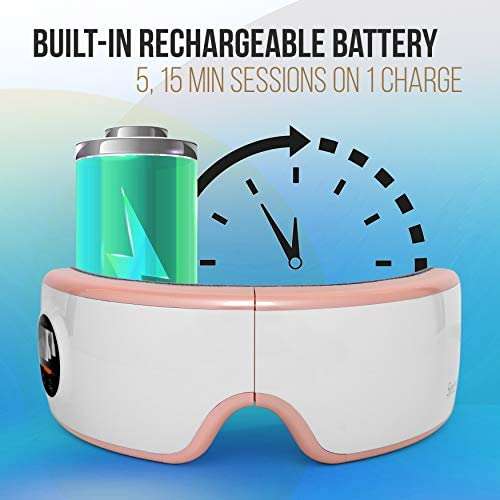Psychotherapy and Psychosomatics
Regular Article
Individual Music Therapy for Mental Health Care Clients with Low Therapy Motivation: Multicentre Randomised Controlled Trial
Gold C.a
·
Mössler K.a
·
Grocke D.h
·
Heldal T.O.a
·
Tjemsland L.e
·
Aarre T.f
·
Aarø L.E.b, d
·
Rittmannsberger H.g
·
Stige B.c
·
Assmus J.a
·
Rolvsjord R.c
Author affiliations
aGAMUT, Uni Health, Uni Research and bDepartment of Health Promotion and Development, cGAMUT, University of Bergen, Bergen, and dDivision of Mental Health, Norwegian Institute of Public Health, Oslo, eStavanger University Hospital, Stavanger, and fNordfjord Psychiatric Centre, Nordfjordeid, Norway; gState Psychiatric Clinic Wagner-Jauregg, Linz, Austria; hUniversity of Melbourne, Melbourne, Vic., Australia
Keywords: MotivationEffectivenessPragmatic trialResource-oriented music therapySerious mental disorders
Related Articles for “”
Psychother Psychosom 2013;82:319-331
https://doi.org/10.1159/000348452
Copyright / Drug Dosage / Disclaimer
Copyright: All rights reserved. No part of this publication may be translated into other languages, reproduced or utilized in any form or by any means, electronic or mechanical, including photocopying, recording, microcopying, or by any information storage and retrieval system, without permission in writing from the publisher.
Drug Dosage: The authors and the publisher have exerted every effort to ensure that drug selection and dosage set forth in this text are in accord with current recommendations and practice at the time of publication. However, in view of ongoing research, changes in government regulations, and the constant flow of information relating to drug therapy and drug reactions, the reader is urged to check the package insert for each drug for any changes in indications and dosage and for added warnings and precautions. This is particularly important when the recommended agent is a new and/or infrequently employed drug.
Disclaimer: The statements, opinions and data contained in this publication are solely those of the individual authors and contributors and not of the publishers and the editor(s). The appearance of advertisements or/and product references in the publication is not a warranty, endorsement, or approval of the products or services advertised or of their effectiveness, quality or safety. The publisher and the editor(s) disclaim responsibility for any injury to persons or property resulting from any ideas, methods, instructions or products referred to in the content or advertisements.
Copyright: All rights reserved. No part of this publication may be translated into other languages, reproduced or utilized in any form or by any means, electronic or mechanical, including photocopying, recording, microcopying, or by any information storage and retrieval system, without permission in writing from the publisher.Drug Dosage: The authors and the publisher have exerted every effort to ensure that drug selection and dosage set forth in this text are in accord with current recommendations and practice at the time of publication. However, in view of ongoing research, changes in government regulations, and the constant flow of information relating to drug therapy and drug reactions, the reader is urged to check the package insert for each drug for any changes in indications and dosage and for added warnings and precautions. This is particularly important when the recommended agent is a new and/or infrequently employed drug.Disclaimer: The statements, opinions and data contained in this publication are solely those of the individual authors and contributors and not of the publishers and the editor(s). The appearance of advertisements or/and product references in the publication is not a warranty, endorsement, or approval of the products or services advertised or of their effectiveness, quality or safety. The publisher and the editor(s) disclaim responsibility for any injury to persons or property resulting from any ideas, methods, instructions or products referred to in the content or advertisements.
Background: Music therapy (MT) has been shown to be efficacious for mental health care clients with various disorders such as schizophrenia, depression and substance abuse. Referral to MT in clinical practice is often based on other factors than diagnosis. We aimed to examine the effectiveness of resource-oriented MT for mental health care clients with low motivation for other therapies. Method: This was a pragmatic parallel trial. In specialised centres in Norway, Austria and Australia, 144 adults with non-organic mental disorders and low therapy motivation were randomised to 3 months of biweekly individual, resource-oriented MT plus treatment as usual (TAU) or TAU alone. TAU was typically intensive (71 % were inpatients) and included the best combination of therapies available for each participant, excluding MT. Blinded assessments of the Scale for the Assessment of Negative Symptoms (SANS) and 15 secondary outcomes were collected before randomisation and after 1, 3 and 9 months. Changes were analysed on an intention-to-treat basis using generalised estimating equations in longitudinal linear models, controlling for diagnosis, site and time point. Results: MT was superior to TAU for total negative symptoms (SANS, d = 0.54, p < 0.001) as well as functioning, clinical global impressions, social avoidance through music, and vitality (all p < 0.01). Conclusion: Individual MT as conducted in routine practice is an effective addition to usual care for mental health care clients with low motivation. Copyright © 2013 S. Karger AG, Basel
Overview
What is music therapy?
Music therapy is the clinical use of music to accomplish individualized goals such as reducing stress, improving mood and self-expression. It is an evidence-based therapy well-established in the health community. Music therapy experiences may include listening, singing, playing instruments, or composing music. Musical skills or talents are not required to participate.
Music therapy may help you psychologically, emotionally, physically, spiritually, cognitively and socially. A short list of benefits includes:
- Lowering blood pressure.
- Improving memory.
- Enhanced communication and social skills through experiencing music with others.
- Self-reflection. Observing your thoughts and emotions.
- Reducing muscle tension.
- Self-regulation. Developing healthy coping skills to manage your thoughts and emotions.
- Increasing motivation.
- Managing pain.
- Increasing joy.
Formal music therapy was defined and first used by the United States War Department in 1945. It helped military service members recovering in Army hospitals with occupational therapy, education, recreation and physical reconditioning.
Who do music therapists work with?
People of all backgrounds, ages and cultures can respond to music, and to music therapy. Notable groups music therapists have helped include:
- Military service members and veterans. Music therapy helps you cope with trauma.
- People with Autism Spectrum Disorder (ASD). Individuals on the spectrum learn best when there is familiarity, structure, predictability and consistency.
- Individuals with Alzheimer’s disease. Music therapy may help with memory and stimulate your mind because of predictability, familiarity and feelings of security.
- People in correctional settings. If you’re incarcerated, in a mental health facility, half-way house or group home, music therapy may help with problem-solving, communication skills, relaxation and decreasing impulsivity.
- Victims of trauma and crisis. If you’ve experienced trauma and crisis, you might have anxiety, stress and pain. Music therapy can help you with decreasing those three experiences, improving your mood, feeling confident and in control and providing a non-verbal outlet for emotions.
- Those who are physically ill. The list includes, but is not limited to people with chronic pain, diabetes, cardiac conditions, cancer, headaches, recent surgery and people in rehab.
- Individuals with mental health disorders. If you’re dealing with a mental health disorder, music therapy can help you with communication and expression, help you explore your thoughts and feelings, improve your mood and concentration and develop coping skills.
- People with chronic pain. Music therapy can help decrease your pain, anxiety, fatigue and depression.
- Substance abusers. Music therapy may help if you have a substance abuse disorder. Research has shown that it can increase motivation and self-esteem, reduce muscle tension, decrease anxiety, improve self-awareness and strengthen coping skills.
Where does music therapy take place?
The most common settings are hospitals, schools, nursing homes, outpatient clinics, mental health centers and residences for individuals with developmental disabilities. Music therapists also go to juvenile detention facilities, schools and private practices.
Is music therapy outpatient or inpatient?
Whether the music therapy is delivered outpatient or inpatient depends on the individual program. You may be able to come in for sessions during the day (just like a counseling appointment), or a music therapist may come to you while you’re admitted into the hospital or at school. Sometimes music therapy is held in groups.
Do music therapists work with children and adolescents?
Yes. Music therapy may help with the following:
- Behavior disorders.
- Mood and anxiety disorders.
- Attention deficit/Hyperactivity disorder (ADHD).
- Autism spectrum disorders (ASD).
- Trauma.
- Substance abuse disorders.



